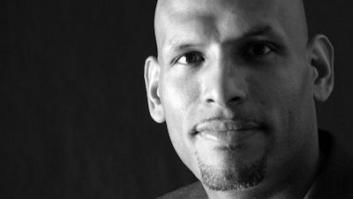In this lesson from Big Think+, NBA basketball player John Amaechi shares with you the plan he created as a child to help him accomplish his dreams.
I think trying to get to the NBA or trying to do anything that is extraordinary and also very improbable—just by statistics—when you look at something like that, you have to have a crystal clear picture of what you’re trying to achieve.
But more than that, you have to have I think a really pragmatic assessment of who you are at the beginning. One of the things about goal-setting that makes me a little crazy is that people always think it’s about looking into the future, looking two, five, ten years in the future and knowing that is where you’re going to get and then they just set off without any clue about where they are right now. And just in terms of simple cartography, you can’t get anywhere if you don’t know where you are now.
So for me when I started off it was a question of looking at myself and saying "Yes, I’m fat. I’m a fat 17 year-old in England. I’m a nerd. I like to sit in the library. I don’t like to sweat. And yet at the same time I’ve been captivated by the idea of being on a basketball court and being surrounded by people who made me look a little bit less like a freak." And so in order to get to the NBA, this ultimate point I had watched Larry Bird and Magic Johnson at the time playing, and I was like that is where I want to be.
So from then knowing who I was I put steps in place knowing that I’d have to get in shape, knowing I’d have to stay motivated, knowing that I’d probably have to leave home in order to become a basketball player of any note.
So I set up a plan that had all these different stages in, but also allowed me flexibility because the thing about plans is that they tend to go wrong at certain stages. You tend to let yourself down. Environmental factors step in and mean that you aren’t where you thought you would be at a certain point and great plans allow flexibility. They allow you to revise your position and yet still stay on the ladder.
I think the more unlikely the goal that you are trying to achieve the more logistically sound a plan has to be. It is one thing to want to be a senior manager of a department shop somewhere—not that in this economy is particularly easy, but it’s certainly more probable than many other types of jobs. And so to get that way perhaps you don’t need to identify every single type of shop and what their particular needs might be, and what each of these shops might be looking for in a person.
But in order to play in the NBA you need to know exactly what the NBA is looking for. You need to know how close to that you can get. You know for me there was simple things like, I knew the NBA was looking for athletes, and I knew I wasn’t one. So I also knew that I didn’t really like to sweat and work hard, so I had to find a trainer who I could respond to, and had to know my personality type—so I didn’t find someone who was a screamer; I found someone who showed his disappointment if I wasn’t working hard, and I found that was the way to motivate me. I knew I was kind of lazy, so I built my house 500 meters away from where my trainer trained athletes, so there was never an excuse. I could just fall out of bed and be there ready to go every day. Knowing yourself, knowing where you want to get, combining those things gives you the pragmatic steps.




